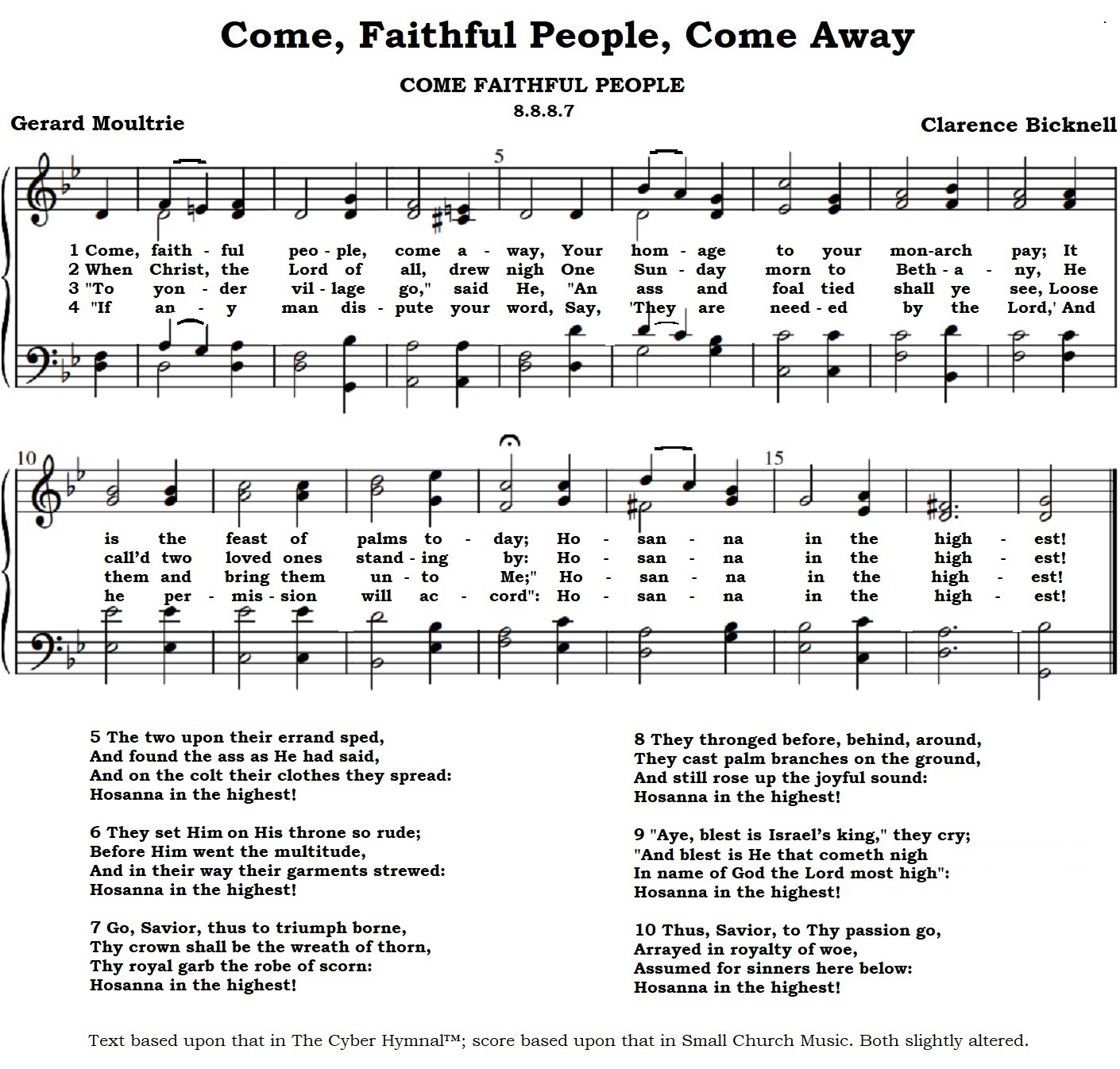 Clarence Bicknell 1908 |
Clarence Bicknell
and His Contributions to Hymnody
Clarence Bicknell (1842-1918) was a British polymath who made significant contributions in a variety of fields, including botany, archaeology, painting, poetry, and hymnody. Born and raised in England, after receiving a B.A. in Mathematics from Cambridge University in 1865, in 1868 he was ordained a priest in the Church of England. In late 1878 he accepted a position as rector of an Anglican church in Bordighera, Italy (near the French border), a popular tourist destination for wealthy Englishmen. Shortly thereafter he suffered a crisis of faith, and departed organized religion, returning to England in June, 1879, but then returned to Bordighera later that year and spent the rest of his life with the Maritime Alps as his home. No longer a clergyman, he was a philanthropist, establishing the first museum in Northwestern Italy (Museo Bicknell, in Bordighera) and spending his time and energy largely on amateur but significant work in archaeology, art, poetry and botany.
Initially a proponent of the invented interlanguage Volapük, which came out about the time he moved to Italy, in the 1890s Bicknell switched allegiance to the newer international language Esperanto, which he learned to speak in 1897. He translated a number (roughly 17 to my knowledge) of hymns from English into Esperanto, as well as writing half a dozen original hymns in the language. Many of them were published in 1907 in Ordo de Diservo, an Anglican service book that contained the first significant collection of Christian hymns in the language. He also composed the melody for one hymn tune, COME FAITHFUL PEOPLE, which was used as the setting of Gerard Moultrie's Palm Sunday hymn Come, Faithful People, Come Away in the 1906 English Hymnal. Although his one tune seems to have fallen out of currency, a number of his hymn texts, original and translated, continue to be published in Esperanto hymnals, with nine of them appearing in the 2001 ecumenical hymnal Adoru.
Bicknell's original hymns (with translations of the first lines) include:
(a number after a hymn indicate its location in Adoru (2001))
Ĉar Dio, la Paŝtisto mia (Since God, my Shepherd [a paraphrase of Psalm 23])and his translations include
El multaj landoj kaj nacioj (From many lands and nations)
Ho! Dio ĉiopova, vivofonto! (O God almighty, source of life!)
Ho! Kreinto de l' homaro! (O Creator of Humankind!)
Patro nia, ni alvenis (Our Father, we have come) 921
Per unu kor' kaj lingvo, bona Di' (With one heart and language, good God)
Click to enlarge COME FAITHFUL PEOPLE His one known hymn tune Hymnals specify that he composed the melody, but are silent on the question of who did the arrangement |
Al Vi, Sinjoro, estu honoro, laŭdo, glor' (a translation of "All glory, laud and honour") 308
Dio de l' viv', de nia savo, Dio! (a translation of "Lord of our life, and God of our salvation")
En la reĝa Betlehemo (a translation of "Once in Royal David's City")
Estro de l'vivo, Ĉiopova Dio! (a translation of "Lord of our life, and God of our salvation") 606
Feliĉe kuŝis la naŭdek naŭ (a translation of "There were ninety and nine")
Haleluja! Haleluja! Dion laŭdu ĉiu kor' (a translation of "Hallelujah! Hallelujah! Hearts and voices heavenward raise") 337
Ho anĝeloj, la Sinjoron adoradu en ĉiel' (a translation of "Praise the Lord! Ye heavens, adore Him") 472
Ho! kiel dolĉe al orelo (a translation of "How sweet the name of Jesus sounds")
Ho Patro Di', mi vagas malproksime (a translation of "My God, my Father, while I stray")
Ho! triumfa Pask-tagiĝo (a translation of "Jesus Christ is risen today")
Jerusalem', benita per lakto kaj miel' (a translation of "Jerusalem the golden") 645
La tago releviĝa! Ho mond' kun laŭta kri' (a translation of "The Day of Resurrection! Earth tell it out abroad") 327
“Laculoj, al Mi venu (a translation of "Come unto me, ye weary")
Laŭdu la ĉielan reĝon (a translation of "Praise, my soul, the king of heaven") 454
Nun estu Di' laŭdata (a translation of "Now thank we all our God")
Reĝeco Dia venu (a translation of "Thy Kingdom Come, O Christ")
Sanktuloj sur la tero kantu (a translation of "Let saints on earth in concert sing")
Sur Kristo sin apogas (a translation of "The Church's one foundation") 666